 Petzlover
Petzlover Siberian is originated from Russia but Van Kedisi is originated from Turkey. Both Siberian and Van Kedisi are having almost same weight. Both Siberian and Van Kedisi has almost same life span. Both Siberian and Van Kedisi has same litter size. Both Siberian and Van Kedisi requires Moderate Maintenance.
Siberian is originated from Russia but Van Kedisi is originated from Turkey. Both Siberian and Van Kedisi are having almost same weight. Both Siberian and Van Kedisi has almost same life span. Both Siberian and Van Kedisi has same litter size. Both Siberian and Van Kedisi requires Moderate Maintenance.
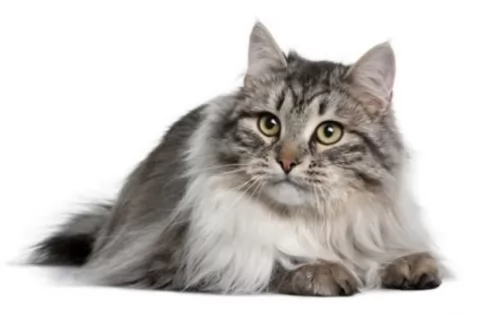 The beautiful Siberian cat originated from Russia, a very cold area which explains his thick coat.
The beautiful Siberian cat originated from Russia, a very cold area which explains his thick coat.
This is a natural variety of domestic cat. It is an ancient breed and it is believed that it is ancestral to all modern long-haired cats.
The Siberian is the national cat of Russia. The cat first arrived in the United States in 1990.
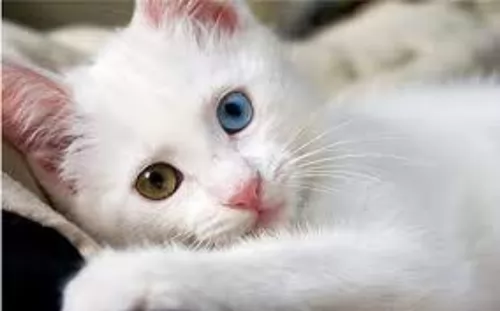 The Van Kedisi cat or Cat of Van as it is also known is a domestic cat that hails from the Lake Van region of Turkey.
The Van Kedisi cat or Cat of Van as it is also known is a domestic cat that hails from the Lake Van region of Turkey.
There are historians who agree that the domestic cat originated in Egypt. The actual cat was developed in the United Kingdom from a host of cat types from Turkey. During the late 1990s the Van Cat became an informal municipal symbol of the city.
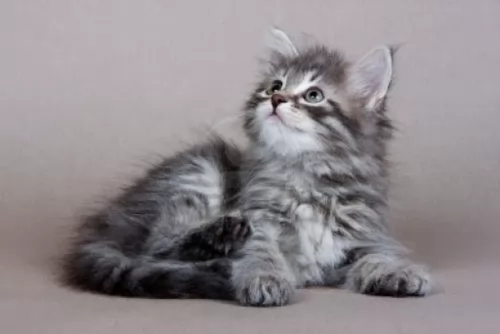 The Siberian is a medium to large-sized cat that weighs between 3 and 7kg. They are known to be excellent jumpers.
The Siberian is a medium to large-sized cat that weighs between 3 and 7kg. They are known to be excellent jumpers.
It is a powerfully built cat with large paws and a full tail. The ears are medium in size with large round eyes. The cat has a slight arch to its back as the hind legs are a bit longer than the front legs.
The glossy coat is in three layers to protect it from extreme weather conditions. It comes in different colors such as tortoiseshell, colorpoint, tabby, and solid. He sheds a couple of times a year.
The Siberian cat is highly affectionate with family and playful too. In spite of that, he also loves curling up close to where his humans are.
This friendly cat will want to follow you and be where you are. They’re intelligent and can be taught a few tricks. Because they’re athletic, it will be a good idea to buy him a climbing tree as he loves to leap up to a perch and watch things going on. He gets on well with children and other pets.
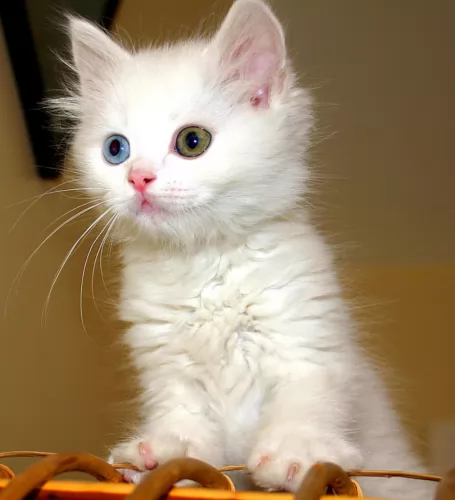 The Van Kedisi cat is a large feline with a soft, silky white coat, which he often sheds in the Summer. There is usually color on the head and tail – a yellow apricot color. The coat is descibed as seni-long.
The Van Kedisi cat is a large feline with a soft, silky white coat, which he often sheds in the Summer. There is usually color on the head and tail – a yellow apricot color. The coat is descibed as seni-long.
He can reach up to 10kg in weight. The cats are lean and long-legged and they also like to swim. The eyes are almond-shaped eyes and are often odd-colored. One eye might be green and the other blue.
Van Kedisi cats have a strong wild side to them, but in spite of this they love getting attention from their human owners. In fact, they demand it or else they can become disgruntled. It's the kind of cat that can adapt to new environments and he is intelligent enough to be able to be trained.
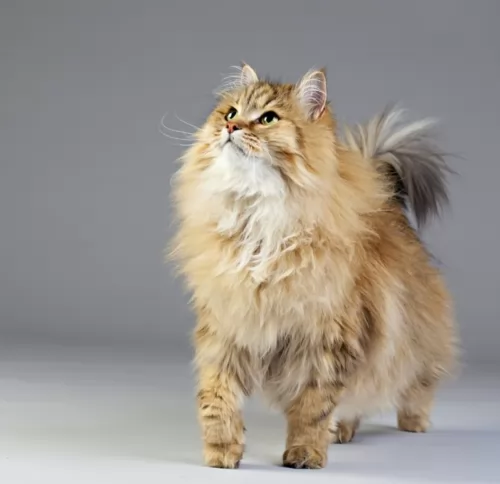 Your Siberian loves to climb and explore and to keep this gorgeous cat mentally stimulated and physically active, provide him with some fun toys that require him to think.
Your Siberian loves to climb and explore and to keep this gorgeous cat mentally stimulated and physically active, provide him with some fun toys that require him to think.
They are nice and strong these cats as well as being curious and alert and you see this in the bright, shiny eyes.
They’ve got easygoing personalities and are also considered fairly low maintenance cats, making them the perfect choice for any cat lover.
They are devoted and loyal to their human family and one of these cats in your home is guaranteed to bring in joy, entertainment, fun, and solid companionship.
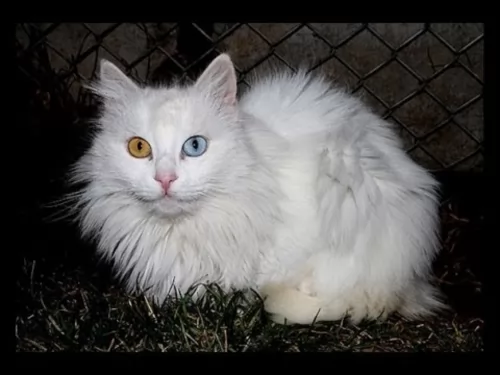 They are lively cats and love playing games with their humans. They will need stimulation from interactive toys. He also loves to leap up onto high perches and watch things from his elevated position.
They are lively cats and love playing games with their humans. They will need stimulation from interactive toys. He also loves to leap up onto high perches and watch things from his elevated position.
If you have decided to have a Van Kedisi in your home, expect things to joyful and entertaining as this cat likes to build a strong bone with his human owners.
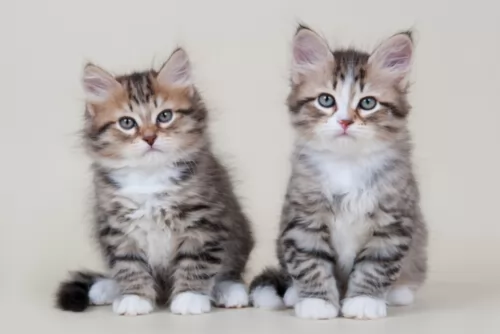 Siberian cats can succumb to stomach issues such as IBS. If you think your Siberian is in pain, he will need a visit to the vet. These cats are also susceptible to some hereditary health issues such as hypertrophic cardiomyopathy. If you buy a kitten, make sure you get your kitten from a reputable source.
Siberian cats can succumb to stomach issues such as IBS. If you think your Siberian is in pain, he will need a visit to the vet. These cats are also susceptible to some hereditary health issues such as hypertrophic cardiomyopathy. If you buy a kitten, make sure you get your kitten from a reputable source.
To ensure the best health for your Siberian, he will need high-quality cat food. High-quality food can actually prevent many health issues in the cat. A good idea will be to feed your Siberian vet-recommended food and in the right portions to keep him at the ideal weight.
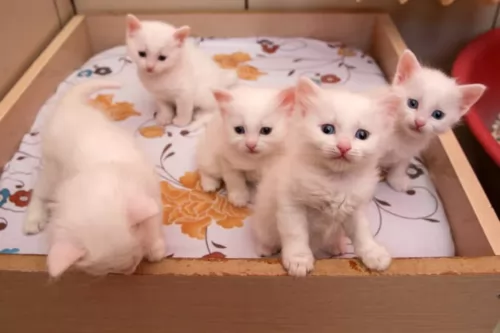 A healthy meat diet for your cat is like a ticket to good health. Cats are carnivores and they rely on you to supply them with food high in protein.
A healthy meat diet for your cat is like a ticket to good health. Cats are carnivores and they rely on you to supply them with food high in protein.
Cats battle to absorb protein derived from plants. Learn to check your food labels to ensure the food contains animal meat. Meat from chicken and tuna is good.
Regular visits to the vet when you suspect that your cat is ill will give you the chance to catch any diseases in their early stages.
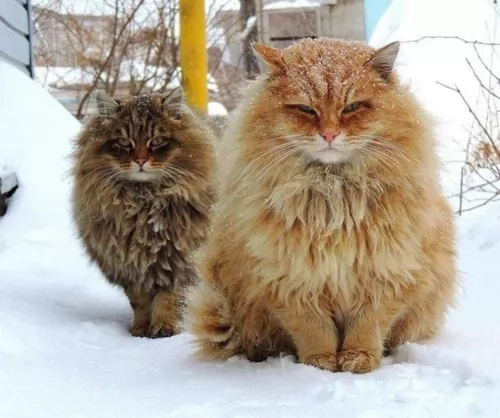 Prepare your home for the arrival of your Siberian cat. Cats are natural climbers and scratchers and he will need a scratching post, climbing tree, litter box, food and water bowls, bed as well as collar and tag. Also, invest in a large cat carrier, as your cat will need to be transported safely to the vet at certain times.
Prepare your home for the arrival of your Siberian cat. Cats are natural climbers and scratchers and he will need a scratching post, climbing tree, litter box, food and water bowls, bed as well as collar and tag. Also, invest in a large cat carrier, as your cat will need to be transported safely to the vet at certain times.
Provide toys for your Siberian cat. They’re intelligent and you don’t want to have him bored and listless. They need mental and physical stimulation so it will be fun to invest in some puzzle games for your pet.
Siberians have lovely thick coats and you want the right grooming accessories to brush him so that the coat doesn’t get dull and tangled. He will need to be brushed once or twice a week, especially when he sheds.
Keep your Siberian healthy by seeing he gets to the vet when he is sick. Also, if he is a kitten, he will need his vaccines. He will need to be checked over for parasites too – ticks, fleas, and worms, more so if he is an outdoor cat.
Trim your Siberian's nails as needed and also check the inside of his ears for signs of redness, dirt, and wax buildup as well as unpleasant odors. Many cat owners don’t like to probe around inside a cat’s ears as it can be damaging if you don’t know what you’re doing. Rather ask your vet to do it for you.
The vet can also check your cat’s teeth for signs of infection. Many people recommend cleaning the cat's teeth with a brush and cat toothpaste but this can be most traumatic for a cat and your pet groomer or vet can rather check his teeth for you.
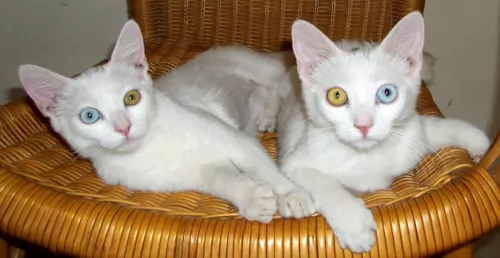 Brush your Van Kedisi each week because the semi longhair can become matted and tangled if not brushed each week.
Brush your Van Kedisi each week because the semi longhair can become matted and tangled if not brushed each week.
The Van Kedisi will need to be vaccinated. As a kitten he will need to be vaccinated against deadly cat diseases. While at the vet he will also be dewormed.
As your cat matures, you will need to make sure that he is free from parasites. Ticks, fleas, and heartworm can cause havoc with your pet and the vet can advise you on a treatment plan.
Have your cat neutered or spayed as not only will it prevent unwanted kittens, but the procedure can have health benefits for your cat too. It can eliminate the possibility of your cat getting some of the many cancers there are. Spaying and neutering also has a positive impact on your cat’s personality.
These are big, strong cats and the temptation will be to overfeed him. They enjoy their food and can easily put on weight. Obesity can bring about many different diseases in your cat.
It is up to you as a responsible cat owner to ensure your ca doesn’t put on a lot of weight but rather maintains a healthy weight. You should also make sure that your feline friend gets regular exercise through playing, walking, and even swimming. These cats enjoy a swim, particularly when it is with their human owners.
Provide your cat with attention and play with him every day. They are playful, intelligent cats and it boosts his morale to have his favorite human playing with him.
Allow opportunities for scratching and climbing. The Van Kedisi loves to climb and scratch – two natural behaviors of cats. Supply him with a scratching post and a climbing tree to get the exercise he needs.